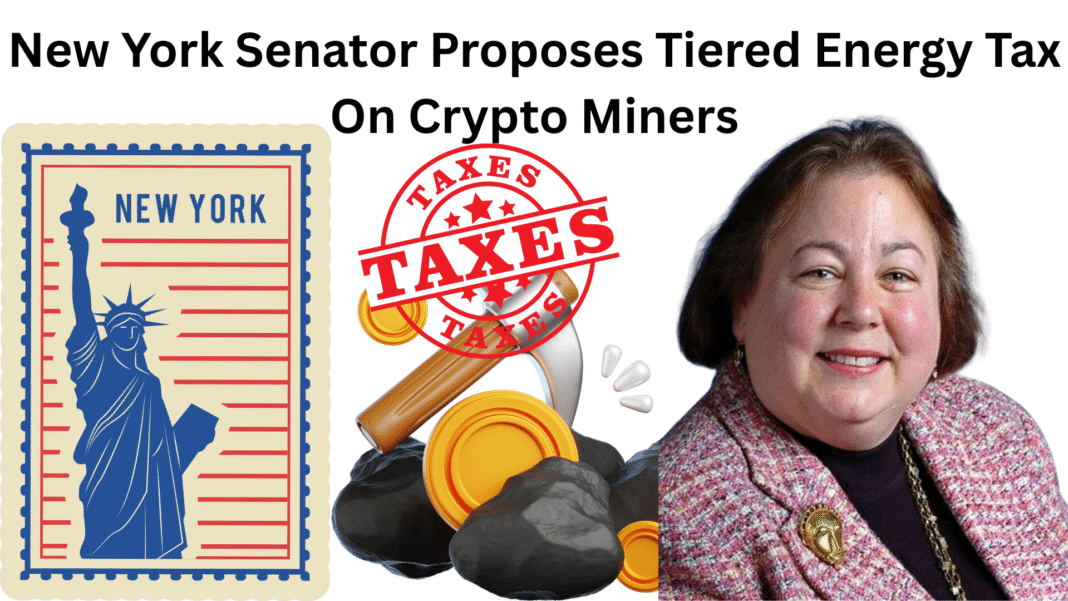New York State Senator Liz Krueger on Wednesday introduced a bill in Albany to tax the electricity used by cryptocurrency mining firms that operate in the state. The measure would apply different excise rates based on how much power a miner draws each year.
The plan covers miners inside New York and carves out an exemption for operations that run on 100% renewable energy.
Supporters say the tax targets heavy energy use, but critics warn it could push some miners to leave. The bill would be applied in tiers and collected from firms based on their annual kilowatt-hour totals.
Proposal details
Under the bill, miners who use 2,250,000 kWh or less per year would pay no excise tax. Those consuming 2,260,000 to 5,000,000 kWh would pay $0.02 per kWh. Miners using 5,000,001 to 10,000,000 kWh would face $0.03 per kWh.
The next band, up to 20,000,000 kWh, is set at $0.04 per kWh. Any operation that consumes more than 20,000,000 kWh in a year would be charged $0.05 per kWh. The bill explicitly exempts facilities that operate on 100% renewable energy.
Also Read: Social App Thumzup Raises $50M To Build Crypto Mining And Expand Coin Holdings
Renewables and the moratorium
Clean energy miners had permission to operate in New York during a two-year moratorium on new mining activity. That pause was signed by Governor Kathy Hochul in 2022 and ended in 2024.
The new proposal keeps the door open for miners who can guarantee all their power comes from renewable sources. The exemption is aimed at encouraging low-carbon operations while still taxing grid-dependent users.
Impact on miners
Crypto mining runs on thin profit margins, adding an excise on power will increase operating costs for many firms. For miners that rely on electricity from the grid, the tax could cut into already tight profits.
Smaller miners and outfits that buy power at retail rates may struggle the most. Firms that can invest in land and build renewable energy systems in remote areas can lower their energy costs and avoid some of the tax burden. That ability gives them an edge over firms that must pay retail grid prices.
Cost pressures and market example
Energy prices rose sharply in the first quarter of 2025, reaching about $0.08 per kWh. That rise doubled the ratio of costs to revenue for some operators. One firm with a facility in upstate New York reported a loss of $61.4 million in that period.
Higher power bills, combined with a new excise, may push some companies to cut back or exit the state.
Regulatory barriers
Beyond energy costs, virtual currency businesses in New York face a regulatory hurdle, the BitLicense. The license is required for operations in the state, and securing it can be slow.
The process may take months or even years. It can also be costly, with fees and compliance expenses that exceed $100,000. For startups, and even for established firms, that adds another layer of challenge.
What comes next?
Lawmakers will debate the bill in committee, and if the measure moves forward, miners and industry groups will likely push back. Some may accelerate plans to move to renewable power.
Others could choose to relocate to states with lower energy costs. The final shape of the policy will decide whether New York encourages cleaner mining or simply drives out a slice of the industry.
The bill adds a clear cost for heavy energy users and tests how policy makers balance grid concerns with an industry under tight margins.
Also Read: Russia Builds Crypto Mining Equipment Register To Stop Illegal Power Use


